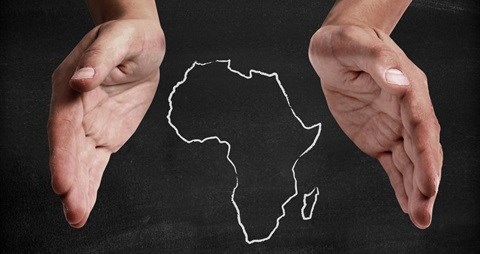Turning tales of hardship into progress, passionate Africans innovatively use technology to improve life on the continent, fuelling future human progress and development especially on the continent's hard-hit rural areas where access to electricity, clean water and landlines is still a luxury.
On May 25 the continent commemorates Africa Day, highlighting the challenges that continue to face our current reality while celebrating the progress we have achieved so far. Africa Day is an opportunity for citizens to reconnect and recommit themselves to support developmental initiatives that aim at changing the lives of Africa and advancing the continent.
According to the Borgen Project, 75 percent of the world's poorest populations are located in Africa, mostly in countries like Zimbabwe, Liberia and Ethiopia. Around 414 million people live in extreme poverty across sub-Saharan Africa. The World Bank estimates that 48.5 percent of the region's population live on UDS 1.25 or just under R15 a day, 589 million live without access to electricity, and less than 20 percent of African women have access to education.
Poverty in Africa is predominantly rural. More than 70 percent of the continent's poor live in rural areas and depend on agriculture for food and livelihood, according to the Rural Poverty Portal.
Such challenging issues provoked ordinary citizens to find innovative solutions to Africa's biggest problems. Thanks to advancements in mobile technology, people without computers can still have access to the internet or electronic data especially in rural areas where electricity is a luxury.

©Lasse Kristensen via
123RFMost families living in extreme poverty depend on rural farming for their livelihood. Traditional farming methods which are still being used due to lack of funds, advanced resources, or access to information, will be replaced by more sustainable and scalable business ideas inspired by some innovative thinkers.
In northern Kenya, the BOMA Project provides resources and training to women in rural areas, empowering them to start their own small businesses at the village. Mentors provide training in business skills and savings, and monitor the project's progress. In villages where electricity is almost non-existent, solar-charged tablets are used to record and analyse data, helping mentors gather data efficiently and provide needed feedback quickly. The result is more successful businesses that can eventually lift more families out of poverty.
Mobile applications, such as the iCow app created by Kenyan farmer Su Kahumbu, uses the power of mobile phones to encourage best practices for small-scale dairy farmers living in remote areas. These farmers often do not have access to vital information such as the latest milk prices. The app also helps them keep accurate record of significant details such as their cows' gestation periods or their livestock lineage which often results in inbreeding and disease.
The fast penetration of mobile technologies and the utilisation of data science are helping Africa change and improve across multiple sectors, including the agriculture-centred rural areas. Simple innovations are changing how villagers access and store their water, leading to improved sanitation and eventually better health conditions.
In other parts of Africa, villagers are using solar-technology to combat malaria where new devices that require no paraffin or electricity have been developed to trap mosquitoes before they enter the household.
Access to education in rural areas has also been boosted through technology, with projects around Africa arming rural schools with tablets and Kindles, giving students access to e-books and minimising the cost of print textbooks.
Africa seeks refuge in technology in its fight against poverty, disease and hunger, developing its unique and innovative solutions that aim at developing and advancing the continent. Africa Day is a reminder that Africans have much to celebrate.


























